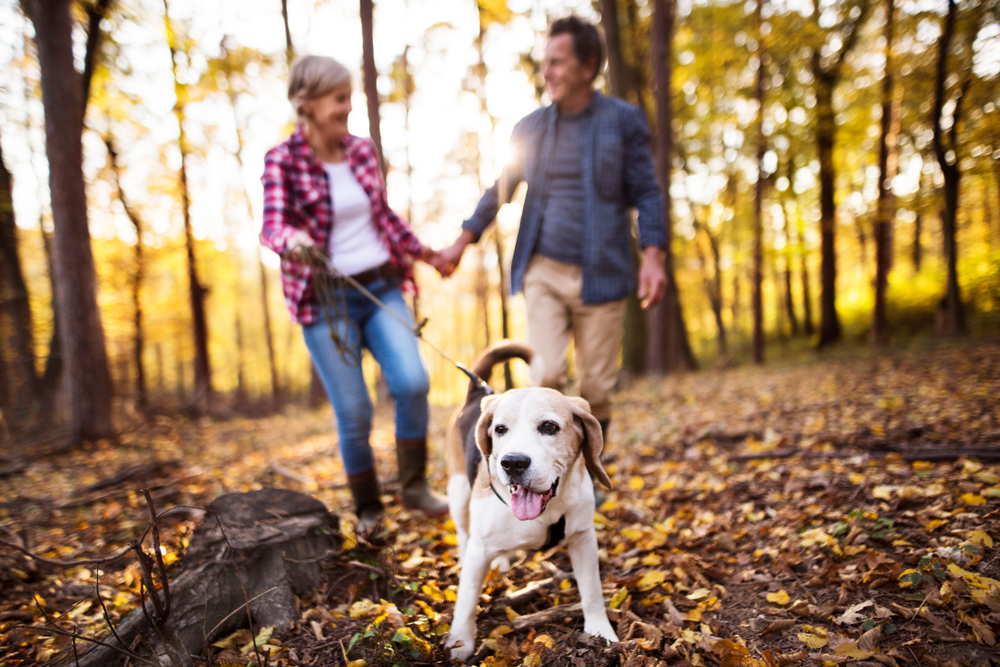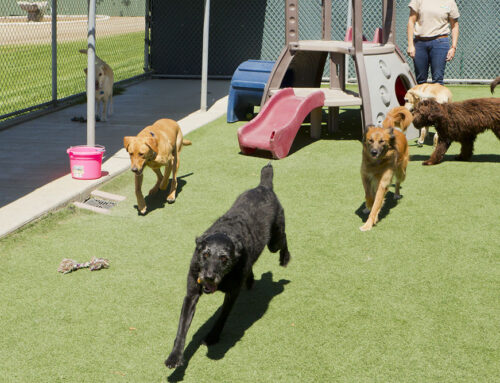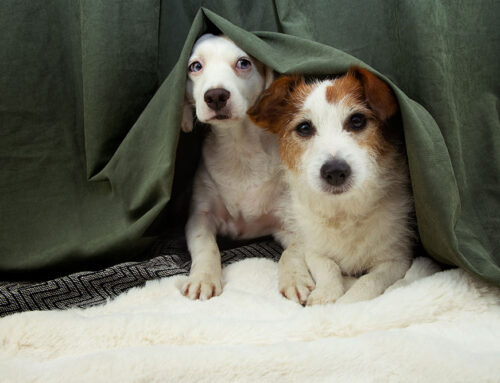Animal Clinic of Council Bluffs wants you and your pets to enjoy a safe, happy Thanksgiving holiday. Amid all the excitement, remember that holidays can be hazardous for your family pets. Festive foods are the top risk for pets, closely followed by pet travel concerns, as well as other holiday pet considerations.
Thanksgiving food dangers for pets
Everyone is tempted by the traditional foods that accompany the Thanksgiving holiday—including pets. But, many foods that grace your holiday table are toxic for pets, so follow these tips to avoid problems:
- Avoid bones for pets — Chewing bones, whether raw or cooked, can cause pet problems. Bones—especially poultry and turkey bones—can splinter, causing esophageal and intestinal punctures or lacerations. We frequently see pets who have fractured teeth while chewing bones. Indestructible chew toys, such as Kongs, are a safer option.
- Avoid pancreatitis for pets — Eating high-fat foods, or any food they are not used to, puts pets at risk. If your pet develops vomiting and diarrhea after ingesting rich food, such as turkey skin, gravy, or buttery mashed potatoes, call us right away. In addition to treating your pet for gastroenteritis, we will run a quick screening test for pancreatitis, a serious condition that requires aggressive treatment, to minimize life-threatening complications.
- Avoid toxic foods for pets — Remember these food items, which can be toxic to pets in only small amounts: chocolate, raisins, grapes, macadamia nuts, onions, and garlic. Xylitol, an artificial sweetener found in many candies and foods, is also toxic to pets. Yeast bread dough may expand in your pet’s stomach and cause bloat, and alcohol poisoning. If you have concerns about anything your pet has ingested, immediately call us, and the ASPCA Animal Poison Control Center.
- Avoid human food access for pets — Keeping pets away from the kitchen or dining area may be your best safety option. Remember, pets can be tempted to ingest dangerous food items on the floor, in the trash, and on countertops.
- Choose pet food or safe people foods as treats — To keep your pet’s diet steady, use your pet’s regular kibble as treats. For a special Thanksgiving treat, you can bake your pet a treat using the canned version of their usual food, or treat them with people foods, such as small amounts of unseasoned, plain sweet potato, carrots, or green beans.
Thanksgiving travel concerns for pets
Many families travel at Thanksgiving. Whether your pet will join you on the plane or in the car, or wait for you at home, follow these tips:
- Choose the best option for your pet — You may not have traveled with your pet before, but you know their temperament and personality. If they are normally anxious, does a ThunderShirt calm them? If you are traveling by plane, can they stay with you in the cabin?
- Consider medication for pet travel anxiety — If your pet becomes anxious while riding in the car, or during stressful situations, ask our team about calming medication options. Natural supplements may do the trick, or prescription medication may be indicated. We can usually offer pet anti-anxiety drugs, such as trazodone, and avoid strong sedation.
- Consider pet boarding in lieu of travel — If you are traveling for the Thanksgiving holiday, consider boarding your pets with us, which is likely safer and more enjoyable for your pet than using a pet-sitter at your home. We love spending time with your furry family members! Our team is dedicated to your pet’s wellbeing, knows their special dietary, medication, and support needs, and is available at all times.
Other Thanksgiving risks for pets

Remember these additional tips to keep your holiday pet-safe, and free of urgent care visits:
- Candles and open flames — Everyone knows how a pet’s tail can get them into trouble. Keep your pet away from lit candles and liquid potpourri. Long hair can get singed, and paw pads can be burned. Battery-operated votives are a safer choice.
- Alcoholic drinks — Some mixers, such as eggnog, can be tempting, as well as alcoholic drinks left in sipping reach. Pets can get alcohol poisoning from ingesting a relatively small amount.
- Walks and hikes — Many families like to walk and hike during this season. Ensure pets have a harness and leash—and use them. Most towns have a “duty to restrain” ordinance to protect animals and people.
Animal Clinic of Council Bluffs wants you and your pets to give thanks, and stay as safe as possible this Thanksgiving. Follow our tips, and call us if any pet problems arise. Dealing with pet problems early is always better than waiting until they get worse.






Leave A Comment